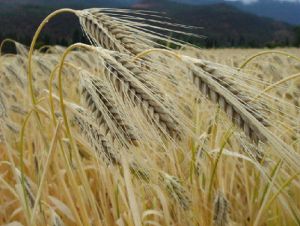Difference between revisions of "Mangzhong"
imported>Ciic |
imported>Ciic |
||
| (7 intermediate revisions by 6 users not shown) | |||
| Line 1: | Line 1: | ||
| − | '''Mangzhong''' reflects a phenological phenomenon. Mang means the crops with | + | [[file: Mangzhong.JPEG|thumb|200px|left|Mangzhong]] |
| + | '''Mangzhong''' (芒种) reflects a phenological phenomenon. Mang means the crops with awning, such as wheat and barley, and Zhong refers to the seeds. | ||
== Weather: == | == Weather: == | ||
Latest revision as of 06:45, 5 June 2013
Mangzhong (芒种) reflects a phenological phenomenon. Mang means the crops with awning, such as wheat and barley, and Zhong refers to the seeds.
Weather:
Mangzhong is a signal for the coming of heavy rain. The areas in the middle-lower reaches of the Yangtze River enter the drizzling rainy season at this time, with less sunshine and sometimes low temperatures. Generally, it's already hot and humid in China.
Farming:
Mangzhong is the time of harvesting crops with awn and planting summer crops. Mangzhong is the busiest time for harvesting and planting, so it is also called "Busy Planting" because the words sound similar to Mangzhong in Chinese.
Tea-picking also starts in this season in most tea-producing areas. Due to the high temperature, tea grows very quickly, so tea leaves have to be picked and refined before they get too old.
Lifestyle:
After Mangzhong, peddlers begin to sell cold beverages and ice cream in the street, and all varieties of summer fruits, including watermelon, lychee, and mango, appear on the market.

